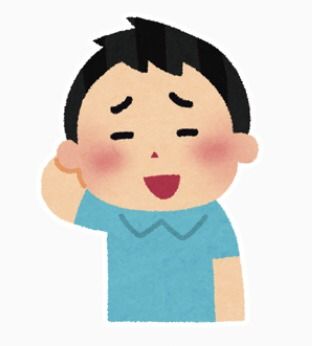“An old woman was attacked by five boys!” says a newspaper.
「アノォウルドゥ ウーマン ワズァタク バイ ファイヴ ボイズ! セズァ ニュースペイパー」
“The postman found an eighty-year-old man living alone dead,” reads the newsman on TV.
「ザ ポウスマン ファウンダ ネイディィエァロウルドゥ マン リヴィンァロウン デッド、リィズァ ニュースマン オン ティーヴィー」
Stories like these give us a sad, frightening picture of old people.
「ストォリーズ ライ(ク) ディーズ ギヴァスァ サァド、フラィニン ピクチャラヴォウルドゥ ピーポー」
We hear and read about the lonely ones, the poor, sick, and helpless ones.
「ウィ ヒィアレン リーダバゥッ ダ ロウンリーワンズ、ダ プォー、スィッカン ヘルプレス ワンズ」
Does this all mean youth has everything, while old age has nothing?
「ダズ ディソォル ミーン ユースァズ エヴリシン、ワイロウルドゥ エィジァズ ナッシン?」
Certainly, times are changing for the old. But not all the changes are bad ones.
「サァルンリィ、タイムザァ チェインジン ファ ジオウルドゥ。バッ ナローラ チェインジザァ バッド ワンズ」
Modern medicine, for example, has made old people healthier than ever before.
「マァダン メディスン、フルグザンプル、ハズ メイドォウルドゥ ピーポー ヘルスィアダネヴァ ビフォー」
Many can now look after themselves until they are eighty or even ninety years old.
「メニィ キャナウ ルキャフタゼムセルヴズ アンティルゼィァ エイディ オア イーヴン ナインティィ イヤーズ オウルドゥ」
Besides, there are many more old people than there used to be.
「ビサァイズ、ゼァラ メニィ モアァ ウォウルドゥ ピーポー ザンゼァ ユーストゥビィ」
The average British woman lives till she is seventy-five. The average British man lives till he is seventy.
「ジ アヴァリッジ ブリディッシュ ウーマン リヴス チル シィザ セヴンディファイヴ。ジ アヴァリッジ ブリディッシュ マン リヴス チルヒィザ セヴンディ」
This means that old people often have a good social life with the people of their own generation.
「ディス ミーンズ ザロウルドゥ ピーポー オーフン ハヴァ グッ ソォシャル ライフ ウィッザ ピーポラヴゼァロウン ジェネレイション」
Old people, too, have more money now than their own parents and grandparents had.
「オウルドゥ ピーポー、トゥー、ハヴ モアァ マニィ ナウ ザンゼァロウン ペアレンツァン グランペアレンツ ハッド」
The “old age pension” is small, but with its help, old people now have enough food to eat and clothes to wear.
「ジ オウルディジ ペンション イズ スモォル、バッ ウィディツ ヘルプ、オウルドゥ ピーポー ナウ ハヴ イナフ フードゥ イートゥン クロウズ トゥ ウェア」
The greatest problem of modern life is loneliness.
「ザ グレイディス プラブラムァ モダン ライフ イズ ロウンリィネス」
Children leave home when they grow up and many old people live alone.
「チルドレン リーヴ ホウム ウェンゼィ グロウアップァン メニィ オウルドゥ ピーポー リヴァロウン」
Families are smaller these days. Fewer old people have brothers and sisters.
「ファミリーズァ スモーラ ディーズ デイズ。フューワァ オウルドゥ ピーポー ハヴ ブラザズァン シスタズ」
Perhaps, an old person’s one or two children have moved to another part of the country.
「プラハァプス、ァノウルドゥ パーソンズ ワナ トゥー チルドレン ハヴ ムーヴトゥ アナザ パーラダ カントゥリィ」
Even when they live nearby, they have their own work to do and their own children to look after.
「イーヴン ウェンゼィ リヴ ニアバイ、ゼイ ハヴゼァロウン ワークトゥドゥ アンゼァロウン チルドレン トゥ ルキャフタ」
They don’t have much time for their parents.
「ゼイドンハヴ マッチ タイム ファゼァ ペアレンツ」
Problems of loneliness often start when people stop work.
「プラブラムザ ロウンリィネス オーフン スタートゥ ウェン ピーポー スタップ ワーク」
Going to work is, for most people, the most important thing in their lives.
「ゴウンナ ワーク イズ、ファ モウス ピーポー、ダ モウス インポータンッ シン インゼァ ライヴズ」
Work makes people proud of themselves, and through work, they are always in touch with their friends.
「ワーク メイクス ピーポー プラウダゼムセルヴズ、アンスルー ワーク、ゼィァ アーウェイズ イン タッチ ウィッゼァ フレンズ」
When people stop work (men at sixty-five, women at sixty), it is often difficult for them to start a new life without their jobs.
「ウェン ピーポー スタップ ワーク(メナ シクスティファイヴ、ウィミナ シクスティ)、イディゾーフン ディフィカル フゼム トゥ スタートァ ニュー ライフ ウィダウッゼァ ジャブズ」
The world has changed so fast since the beginning of this century that it is difficult for old people to understand the problems of young people.
「ダ ワールハズ チェインジドゥ ソウ ファス スィンスァ ビギニンナ ヂィス センチュリィ ザリリズ ディフィカル フォォルドゥ ピーポー トゥ アンダスタン ダ プラブラムザ ヤン ピーポー」
When the eighty-year-old people of today were children, there were no planes, radios, or TV sets.
「ウェンネ イディィエァロウルドゥ ピーポーラ トゥデイ ワァ チルドレン、ゼァ ワァ ノウ プレインズ、レィディオズ、オァ ティーヴィ セッツ」
There are many more things in the world today that were not there in their childhood.
「ゼァラ メニィ モアァ シングズ インダ ワールトゥデイ ザッ ワァ ノッゼァ インゼァ チャイルドゥフッド」
And the world is changing even faster these days than it was fifty years ago.
「アン ダ ワールディズ チェインジン イーヴン ファスタ ディーズ デイズ ザニワズ フィフティィ イヤーズァゴウ」
You begin to wonder, don’t you? What will it be like when today’s young people are old?
「ユビギントゥ ワンダァ、ドンチュ? ワッウィリッビィ ライク ウェントゥデイズ ヤン ピーポーラァ オウルド?」



コメント